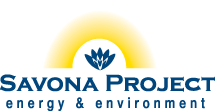Sectors of Activity
We provide consulting and engineering services in the field of environmental protection and energy conservation. In particular, we focus on topics related to the renewable energy source, use of waste for energy production, combined production of electricity and heat and energy efficiency.
We provide our services in the following sectors:
District heating and power generation
Our competences and experience in the area of energy issues are located primarily in small and medium-sized commercial power engineering, as well as in cogeneration and polygeneration of energy in distributed systems.
Therefore, we prepare projects in the field of energy production by small units or medium-sized generation facilities, connected directly to distribution networks or located in the customer’s power grid, producing electricity from renewable or conventional sources, often in combination with the production of heat (distributed cogeneration) and/or cold (trigeneration).
Among possible investment / modernization options of sources, in addition to increasing energy efficiency, the following technological directions, falling within our scope of activities, can be mentioned:
RENEWABLE ENERGY SOURCES
Scope of our services includes in particular:
- Heating plants fired with “sustainable” biomass
- Heat and power plants fired with “sustainable” biomass
- Municipal, agricultural and industrial biogas plants
- Wind and photovoltaic farms
WASTE TO ENERGY
A technical and technological option that allows, on the one hand, to increase energy security in local energy and heating systems, and, on the other hand, to manage waste in accordance with the waste management hierarchy, with local use of its energy potential, are installations for the thermal conversion of alternative fuels (RDF) or non-recyclable energy fractions separated from municipal or industrial waste (preRDF) with energy recovery.
Such installations, which in a way connect the heating sector with the waste management sector, most often allow for the development of additional synergy effects in terms of economic efficiency and energy security by combining waste management and energy production systems.
Our experience as well as technical and engineering competences include both incineration plants with energy recovery as well as other thermal waste treatment processes such as gasification, pyrolysis or plasma processes, etc. Yet another possible option for producing energy from waste is biogas plants.
DISTRIBUTED SOURCES OF ENERGY PRODUCED IN COGENERATION - POLYGENERATION
Cogeneration and polygeneration installations (CHP, CCHP) based on natural gas-powered engines, gas turbines and microturbines.
ADAPTATION TO THE BAT CONCLUSIONS / "FIT for 55" PACKAGE
Adaptation to the BAT Conclusions includes the modernization of existing large fuel combustion plants to the higher environmental and efficiency standards specified for these plants in the BAT Conclusions.
ENERGY STORAGE
In the era of intensive development of Renewable Energy Sources, especially those less stable, dependent on weather conditions, and taking into account the market conditions related to the formation of energy market prices based on the temporary demand/supply relationship, which results in a very clear differentiation of energy prices, the possibility of storing periodic surplus energy in order to use them later for own needs is becoming increasingly important.
Possible solutions include:
- Electricity storage – lithium-ion batteries
- Heat storage/reservoirs
- Hydrogen storage/tanks
- Reserve and peak pumping stations
Waste management
WASTE MANAGEMENT SYSTEMS
SAVONA PROJECT offers comprehensive consulting and expert support in the process of planning, implementing, auditing and managing municipal waste management systems (SGOK), in a way that ensures safety for people and the environment and complies with legal requirements, including, above all, the waste management hierarchy.
The key condition for planning and implementing SGOK is the Circular Economy Package (CEP) – a set of EU directives defining the principles of modern waste management and demanding normative goals in this area. In accordance with the CEP, all economic activity should be switched from a linear model to a circular model, in which post-consumer material should be treated as a resource and not as waste. The normative goals specified in the CEP concern primarily the levels of preparation for reuse and recycling required in the coming years and the reduction of municipal landfilling.
The scope of our services covers all functions that make up the municipal waste management system, including in particular collection, storage, transport, material and energy recovery and waste disposal, including through landfilling.
The definition of investment needs is preceded by an audit and/or assessment of the waste management system in terms of deficiencies and needs of the above-mentioned functions. Such an assessment is conducted in the context of compliance with legal requirements and the possibility of achieving the assumed SGOK goals. It also takes into account system development forecasts along with an analysis of demand for functions related to the municipal waste management system.
WASTE MANAGEMENT INSTALLATIONS
The basic determinant of modern waste management systems, that meet the legal requirements, is compliance with the waste hierarchy. In this hierarchy, prevention, minimization and reuse are the basis of modern waste systems. Another preferred management option is recycling, followed by recovery, including energy recovery, and the least desirable management option is landfilling.
Taking the above into account, in addition to organisational and educational activities, the key role in planning, implementing and functioning of modern waste management systems is played by ensuring effective waste treatment installations, in the first place – recycling and recovery, allowing for a significant reduction in the amount of landfilled waste and effective recovery of raw materials and energy.
Our experience and technical and engineering competence cover all components of the technical and technological equipment of waste management systems, including, but not limited to:
- Recycling stations – Selective Municipal Waste Collection Points (PSZOK),
- Organic recycling installations for selectively collected biodegradable fractions of municipal waste (composting plants, methanation installations),
- Raw material sorting plants,
- Thermal waste treatment installations with energy recovery,
- Mechanical-biological waste treatment installations (MBP),
- Landfills.
SLUDGE MANAGEMENT INSTALLATIONS
Sludge management in sewage treatment plants is an issue of equal importance to the sewage treatment process itself, significantly affecting the total costs of its treatment. The costs of sludge processing can constitute approx. 30% of the investment costs and up to 50% of the operating costs of the entire treatment plant.
Appreciating the importance of sewage sludge processing, we direct an offer to potential customers to optimize technical and technological solutions, taking into account the criterion of energy efficiency of the sewage treatment plant and its main nodes. A properly selected method of sludge processing has a fundamental impact on the efficiency of biogas production in fermentation processes, sludge production and the degree of their dewatering and their final stabilization.
The scope of optimization may include a whole range of issues and possible technological options for the treatment and management of sewage sludge, such as:
- processes improving the efficiency of biogas production (e.g. disintegration processes, hydrolysis),
- anaerobic stabilization (fermentation) processes of sludge,
- mechanical dewatering processes of sludge,
- drying processes of municipal sewage sludge (conventional, solar and mixed dryers),
- processes of thermal treatment of municipal sewage sludge (WtE).
Energy efficiency in industry
ENERGY AUDITS
We offer energy audits of technological processes, energy audits of heat, electricity and cooling sources, and electrical audits (optimization of electricity consumption in buildings, installations and internal transmission networks).
ENERGETIC OPTIMIZATION OF PROCESSES
Our offer in the field of energy efficiency improvement includes planning and implementation of measures leading to the reduction of primary energy consumption, at the stage of production, transmission, distribution or final consumption of energy. Such activities may include the implementation of technological or systemic (organisational) changes.
As part of energy conservation and energy efficiency improvement, we prepare projects:
- reduction of energy consumption of industrial installations and equipment,
- energy optimisation of industrial processes,
- energy monitoring and management systems (energy efficiency),
- implementation of ESCO investment projects.
For the above-mentioned projects, we prepare application forms using financial support mechanisms.
We also offer consulting in the field of planning and implementing energy management systems and/or energy efficiency.
ENERGY SELF-SUFFICIENCY
Energy self-sufficiency is the ability to meet the total energy demand through its own, often renewable, sources. This includes both the production and consumption of energy sustainably and independently of external suppliers. In the context of the energy transition, energy self-sufficiency is a key objective. It reduces dependence on fossil fuels and contributes to a more efficient and sustainable energy economy. Switching to renewable energy sources such as solar, wind or geothermal energy is one of the steps towards energy self-sufficiency. In addition, improving energy efficiency, e.g. through better insulation of buildings or the use of heat and electricity cogeneration, also contributes to achieving this goal.



